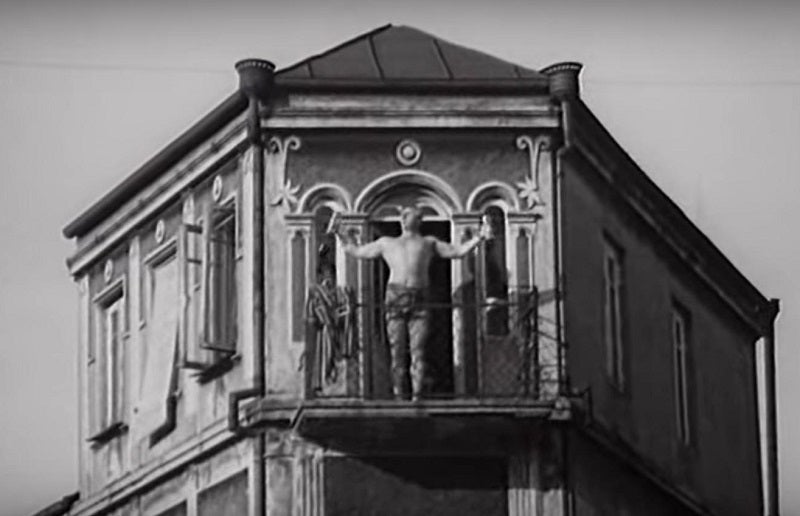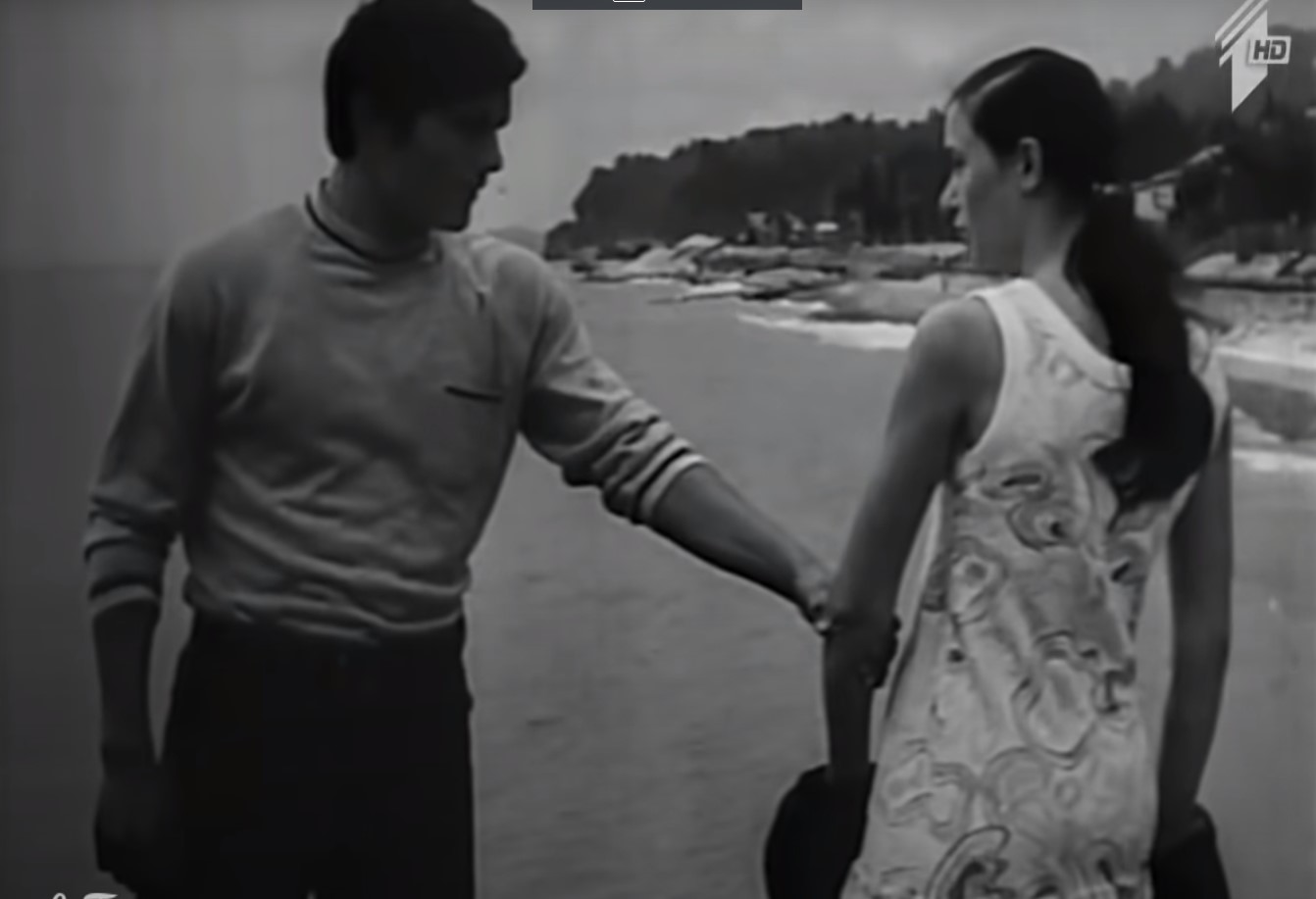Batumi and Cinema
The advent of cinematography was a significant event at the start of the 20th century. Initially, cinema was perceived as a technological marvel where still photographs came to life, moving and rapidly captivating the hearts and minds of viewers. It soon occupied a unique and esteemed position in many people's lives, eventually evolving into an independent form of art. This fascinating medium, which retains its compelling power to this day, piqued the curiosity of numerous creators.
Even in the last century, Batumi held a significant place in the lives and work of many Georgian and foreign filmmakers who visited the city. This influence was often reflected in their creative outputs.
Films produced in this city range from internationally recognized award winners to those that remain relatively unknown to viewers. There are films noted for their substance and high artistic merit, and others that might not be considered masterpieces. However, each film holds a special value, as it preserves a fragment of the history of this exceptional city.
Many well-known and beloved Georgian films were shot in Batumi:
In 1984, Tengiz Abuladze's film "Repentance" was released, earning unprecedented success at international film festivals. Several scenes from the film were shot in Batumi. Notably, the scene featuring Abel Aravidze's house was shot in the building of the Berdzenishvili Research Institute, Sandro Barateli's house was at 51 Farnavaz Mefe Street, and the dream sequence took place in the local Catholic church.
Parts of the widely beloved film "Unusual Exhibition" were filmed in Batumi. Viewers will fondly remember the scene where the colossal Dodo Abashidze exercises with dumbbells on a small balcony. This iconic balcony is in Batumi. Although post-restoration changes have altered its original decor from the time of the film, the building still sparks memories of the movie. The film also features a scene on what is now Gorgasali Street, depicting Aguli leaving his family and Pippinia throwing a violin out the window. The house where Aguli's character resided no longer exists, but the film, shot in 1968, offers a memorable snapshot of this street.
Another integral piece of Batumi's intriguing history and cultural life is the well-known and popular film "12 Chairs" (1971). Directed by the renowned comedy filmmaker Leonid Gaidai, this film is based on the work of the same name by Ilf and Petrov. Filming took place at Mtsvane Kontskhi and various other parts of the city. Actors Roland Kakauridze and Shota Meskhidze from the Batumi Theater can be seen in the film as entertainers sitting at a table in a seaside restaurant.
Several other films were also shot in Batumi, including "Manana", "Swimmer", "Those Who Wish Can Sign Up", "Setting Sun", "Feola", and "How to Live Without You".
Three decades ago, the film "Love and Pigeons" (1984) was released. Directed by Vladimir Menshov, who had previously only made two films, including the internationally acclaimed "Moscow Does Not Believe in Tears" (1979). This film won numerous prizes, including the 1981 Oscar for "Best Foreign Language Film".
One of the earliest films shot in Batumi is "Amok" by Kote Marjanishvili. In 1927, Kote Marjanishvili created a film adaptation of the novel by celebrated writer Stefan Zweig. Scenes from the film depict the platform of the botanical garden, the city as it was then, and the Green Cape. The footage also features the only high-rise building at that time, the renowned Soboro Cathedral, which was later demolished by the communist regime in 1932.
As a crucial cultural hub, Batumi routinely hosts international film, theater, and music festivals of various genres and content, attracting large crowds. The Batumi International Film Festival has become a time-honored tradition, gaining popularity and global recognition. Similarly, the International Festival of Animated Films, originally called "Topuz", has established itself as a must-visit event for children and an excellent venue for networking.
In the past decade, Batumi's remarkable transformation, the restoration of old districts, the addition of new, modern architecture, and historical landmarks have made the city an appealing filming location for cinematographers and those interested in this field, particularly for foreign directors.
Independent producer and director Alexander Atanesian filmed episodes of the full-length feature film "Kill the King" in Batumi, where the actors Zurab Kavtaradze, Lia Abuladze, Jemal Veliadze of the Ilia Chavchavadze State Drama Theater participate. The film was released in 2009.
In 2013, with the cooperation of the Georgian French-Spanish parties, the filming of the full-length feature film "Someone Else's House" took place in the village of Dagwa, Kobuleti district. The film talks about the life of homeless, war-victims: a silent village, frozen nature, vast citrus groves, crowded gloomy houses - this is the natural scenery of the film, against the background of which the story of the heroes unfolds. Several famous Georgian and foreign actors and cinematographers participated in the shooting of the film.
Within the framework of the joint international project of Georgia-Turkey, several films and TV series have already been created. Among them is the series "North-South", which enjoys considerable popularity and high ratings on Turkish TV channels. Actors of the Batumi Ilia Chavchavadze State Drama Theatre participated in it. Filming of the movie episodes took place in the restored districts of old Batumi.
On June 12, 2013, Batumi was visited by Christopher Coppola, the nephew of the director of the famous film "The Godfather", Francis Ford Coppola, as well as a famous Hollywood producer and director, a representative of the Coppola dynasty, the professor of the San Francisco Art Institute, the brother of actor Nicolas Cage and the cousin of director Sofia Coppola, who starred in a film made by students of the Art University. He then visited Batumi again in January 2014, this time to shoot his new horror film, Natia's Dreams.
The renowned Iranian director and screenwriter, president of the Asian Film Academy, Mohsen Mahmalbaf, shot scenes for his movie "The President" in Batumi. Mahmalbaf's films have received numerous awards and recognitions at international film festivals. In 2001, his film "Kandahar" was included in TIME magazine's list of the 100 best films of all time.
The geographic range of directors who have come to Batumi to shoot a film is incredibly diverse, and the films that have been shot here vary greatly in terms of genre and chosen shooting locations.
The set is one of the key elements in conveying the content of a film: location, environment, nature, and a particular building where the action takes place. If we consider films from this perspective, it's clear that the revitalized Batumi, with its historic districts and modern architecture, is an ideal setting for a film of any genre.

